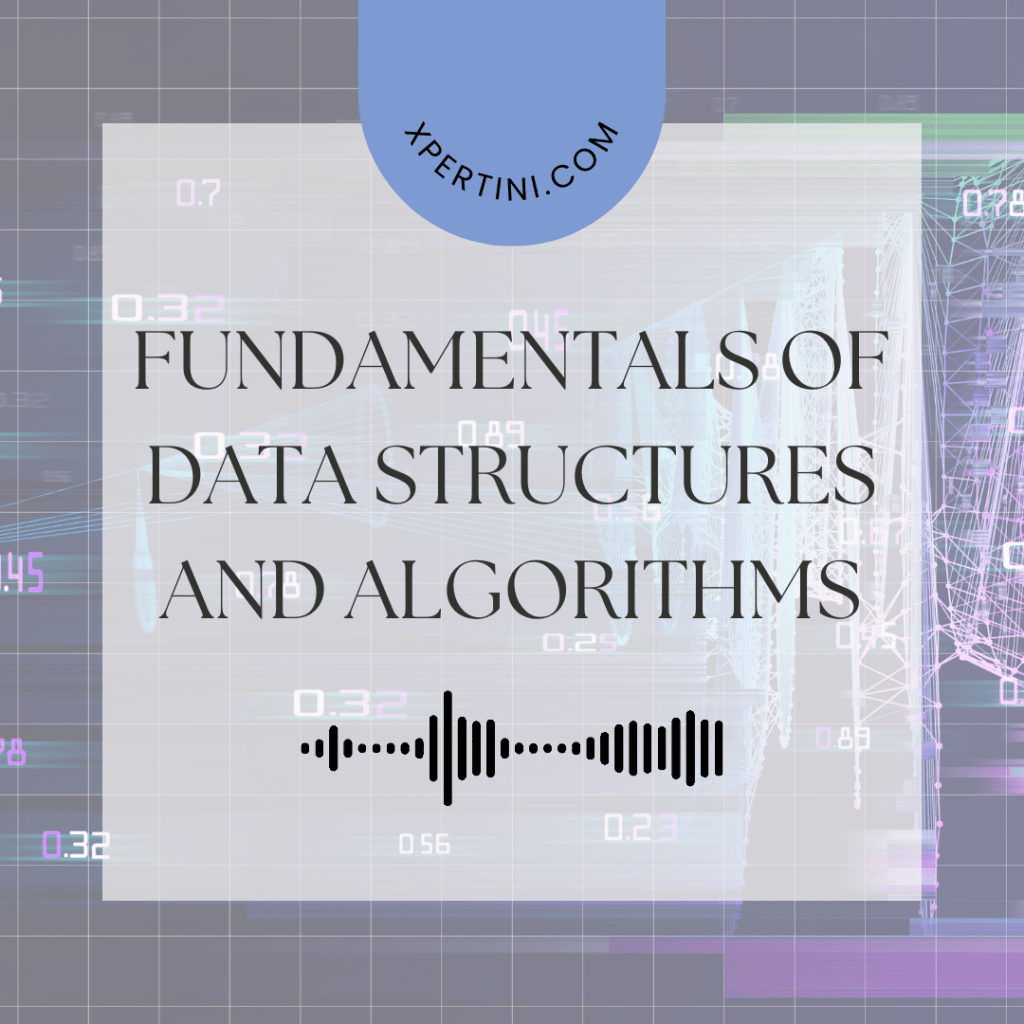Fundamentals of Data Structures and Algorithms
Course Summary
In this comprehensive course on Data Structures and Algorithms, learners start a rigorous yet accessible exploration of the fundamental principles governing the efficiency of algorithms and the organization of data. Exploring the complex domain of computational problem-solving, the course strategically breaks down various topics, blending theoretical foundations with practical applications.
The exploration commences with a thorough exploration of foundational data structures, unveiling the subtle complexities of arrays, linked lists, stacks, and queues.Learners navigate the terrain of algorithms, exploring essential sorting methods and grasping the principles of recursion and backtracking. The course tactfully dissects graph algorithms, shedding light on techniques like Depth-First Search and Dijkstra’s Algorithm, essential for effective traversal and pathfinding.
A crucial segment of the course focuses on the programming paradigm, revealing its strategic application in solving optimization problems. The exploration of time and space complexity analysis introduces learners to the critical skill of evaluating algorithmic efficiency, a fundamental aspect of algorithm design.
Participants explore techniques such as time and space complexity analysis, delve into real-world examples like quicksort and PageRank, and learn to apply optimization techniques to improve existing algorithms. The course emphasizes breaking down complex algorithms, employing loop optimization, and identifying redundant computations to achieve optimal efficiency, illustrated through the optimization of the Fibonacci sequence calculation and the space efficiency of hash tables.
Strategically positioned towards the conclusion, lessons on career opportunities provide a panoramic view of potential roles in the data structures and algorithms domain. Learners gain insights into diverse career paths, from software engineering to data science, and acquire practical strategies for excelling in technical interviews. The course culminates with a comprehensive exploration of essential skills sought by employers, balancing technical proficiency with critical soft skills, ensuring learners are well-prepared for the demands of a rapidly evolving industry.
Throughout this course, the narrative seamlessly integrates theoretical foundations with real-world applications, providing a comprehensive understanding of data structures and algorithms. The interactive methodology, complemented by collaborative projects, equips learners with theoretical knowledge and practical skills, providing valuable insights to navigate algorithmic problem-solving.
Course Overview
This course provides a foundational understanding of data structures and algorithms, essential for anyone aspiring to build a career in computer science. Participants will delve into the core principles and applications, gaining practical skills to tackle real-world programming challenges.
Course Objectives
- Understand the fundamental concepts of data structures and algorithms.
- Develop problem-solving skills through algorithmic thinking.
- Gain proficiency in implementing and analyzing various data structures.
- Learn to optimize algorithms for improved performance.
- Apply theoretical knowledge to practical programming scenarios.
- Explore the historical evolution of key data structures and algorithms.
- Foster collaboration and critical thinking in problem-solving.
- Prepare for advanced topics in computer science and software development.
- Develop a strong foundation for technical interviews.
- Explore diverse career opportunities in the field.
Course Outcomes
- Demonstrate proficiency in designing and implementing linear data structures.
- Analyze and compare the efficiency of different sorting algorithms.
- Apply recursion to solve complex programming problems.
- Design and implement graph-based algorithms for problem-solving.
- Demonstrate mastery in dynamic programming techniques.
- Analyze the time and space complexity of algorithms.
- Collaborate in team-based coding projects.
- Critically evaluate the historical significance of key data structures.
- Optimize algorithms for improved performance.
- Explore and articulate career opportunities in the domain.
Course Audience
- Computer science students
- Software developers seeking foundational knowledge
- Anyone interested in enhancing problem-solving skills

